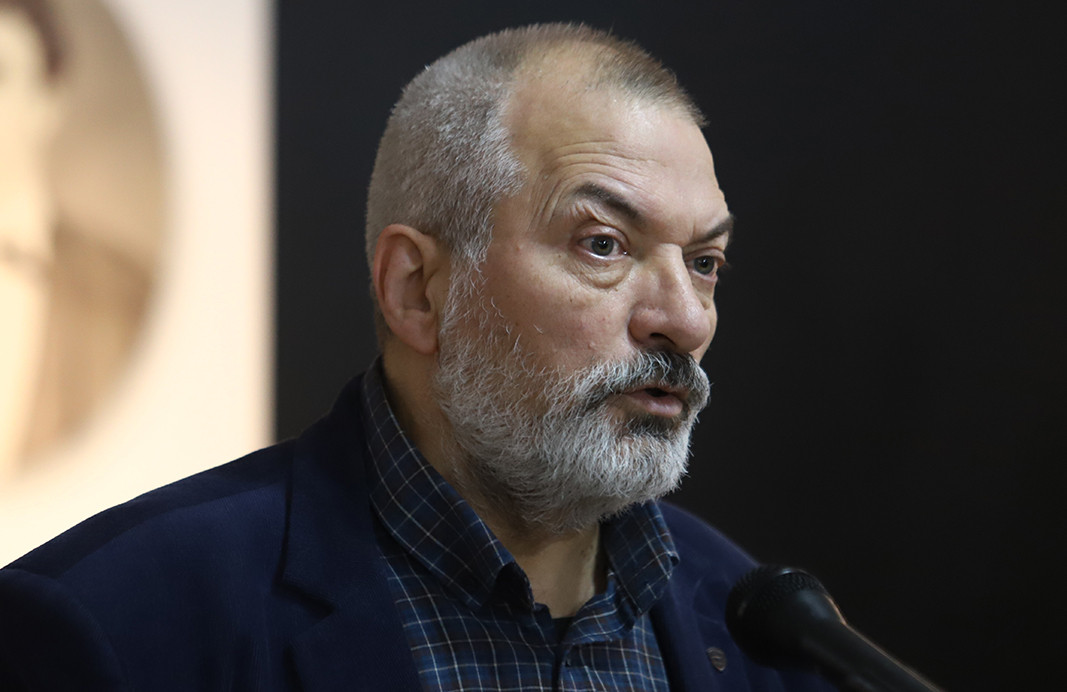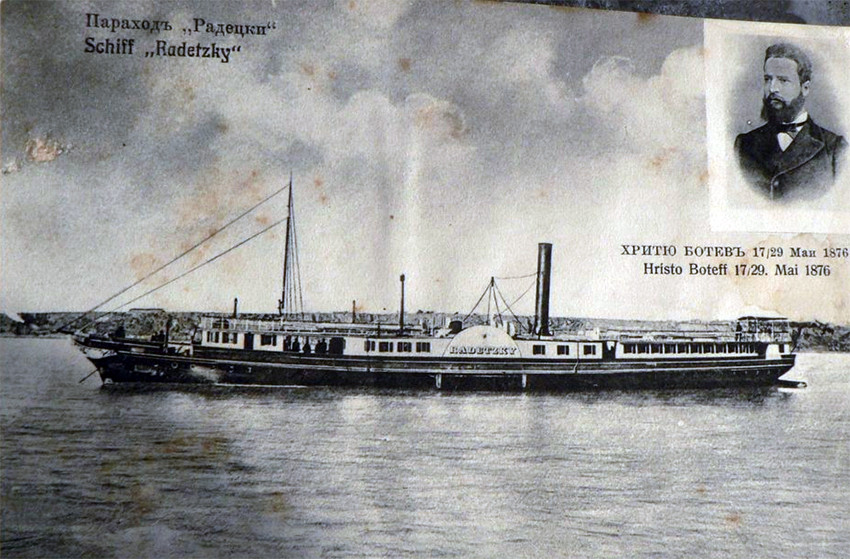On June 2, we bow to Hristo Botev - a zealous supporter of the freedom of Bulgaria, a poet and a publicist. At exactly 12:00, a siren's howl and a minute of silence remind us of the feat of the revolutionary and of all those who died for the freedom of the homeland. The tradition showing the national respect for the hero dates back to 1948. One of the last documents written by Hristo Botev himself is his personal notebook.
The fiery journalism of Hristo Botev shows that the Bulgarian emigration in Wallachia in 1875 was in a hurry to raise its own uprising, following the example of the Serbs in Herzegovina and Bosnia. In order not to miss the moment, the revolutionary-minded wanted the issue of Bulgaria's liberation to also be placed on the agenda of European diplomacy. This could only be done through a bold armed action. It was clear to many people at that time that another aggravation of the Eastern Question and changes in the European possessions of the Ottoman Empire were imminent.

On August 12, 1875 An extraordinary people's committee meeting was held in Bucharest. A plan for a nationwide uprising was adopted there. The time for preparation inside the Bulgarian lands was very short and therefore the entry of large detachments from Serbia, Romania and Southern Russia was expected. Hristo Botev, as a messenger of the Bulgarian Revolutionary Central Committee went to Odessa to recruit people and gather money and weapons among the Bulgarians in the Russian Empire. At that time, the poet- revolutionary had a notebook in which he started to write down his expenses and the names of over 200 volunteers he met.

"We know for sure that on behalf of the Bulgarian Revolutionary Central Committee, Hristo Botev travelled to Odessa, passing through various settlements where there were compact Bulgarian emigrant groups. The first names mentioned in Hristo Botev's notebook are precisely those of activists within the then-Russian Federation. These were all activists whom we would see later as participants either in the preparation of the uprising that was planned but did not happen in September 1875, or as part of the apostles in Giurgiu*, or as participants in Botev’s group,” says historian from Sofia University, Prof. Plamen Mitev.

When the premature announcement of the uprising in Bulgarian lands came, the idea of a large emigrant detachment needed to be realized. In practice the preliminary preparation that began in March and April was brought to the finale in Botev's plan to create a group of over 200 people who passed through the Kozloduy region on May 17 to join the Bulgarian uprising."
It is not surprising that on most pages in Hristo Botev's notebook we find the names of dozens of figures who were present in the various plans from the summer of 1875 to the spring of 1876 for the creation of such emigrant detachments. "But the fact is that the overwhelming majority are figures who were part of the Botev Detachment," the researcher adds.

A draft of a part from the poem "The Hanging of Vasil Levski" has also survived in Hristo Botev's notebook. The poet crossed out part of the written text, which means that the rhymes were not spontaneous and that the words were arranged for a long time. Making reference to the present day, Professor Plamen Mitev says: "Levski requires thinking."

Before the detachment disembarked at Kozloduy from the Radetzky ship, Hristo Botev gave his notebook to merchant Dimitar Gorov, also a figure in the Bulgarian revolutionary cause. The idea was to keep it safe so that it would not fall into the hands of the Ottoman police. The pages contained many names and addresses and this could bring harm to the conspiratorial committee network. The experience gained by the revolutionary figures after the death of Vasil Levski encouraged them to be very careful and conspiratorial. Botev gave a personal example of this.

"That this is not just an act of preserving an archive for future generations of historians, or like-minded people in the cause, we can also judge by the fact that he also gave Dimitar Gorov two letters to his like-minded people in Wallachia, as well as the last letter to Botev’s wife (Veneta) and his daughter Ivanka, who was a newborn baby at that time. Dimitar Gorov, together with his wife, disembarked at the port in Bechet and thanks to this, today we have these last documents written by Botev's hand," Prof. Mitev says.

*After the failure of the hastily organized Stara Zagora Uprising of September 1875, in December, young revolutionary figures gathered in Giurgiu and decided to begin preparing a new uprising in Bulgaria. The so-called apostles dissolved the committee and went to the interior of Bulgaria to prepare a new uprising of the Bulgarians, which remained in history under the name of the April Uprising. The detachment organized by Hristo Botev joined the April Uprising. The capture of the Austrian ship "Radetzky" and disembarking on the Bulgarian bank of the Danube helped to popularize the Bulgarian cause in Europe.
Author: Ivo Ivanov
Publication in English: Alexander Markov
Photos: BGNES, nationallibrary.bg, bulgarianhistory.org, library
On 16 April 1879, the deputies of the Constituent Assembly debated, approved and signed Bulgaria’s first constitution, the Tarnovo Constitution. This document established the legal basis for the establishment of the new Bulgarian state following the..
8 November is celebrated as the Feast of Saint Michael the Archangel. According to church legend, Archangel Michael commands the whole army of angels in the fight against the forces of darkness, and during the second coming of the Son of God, he will..
In today’s world, where material values overshadow the spiritual, reflections on the salvation of souls somehow remain in the background. The constant race against time and the stream of daily tasks muffle the voice of the soul, which struggles to..

+359 2 9336 661
